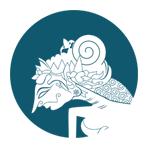Application of Unggah-Ungguh Javanese for Moral Values Development in Preschool Children
 Country:
Country:
(1) Departement of Early Childhood Education, Universitas Negeri Yogyakarta, Indonesia, Indonesia
(2) Departement of Early Childhood Education, Universitas Negeri Yogyakarta, Indonesia, Indonesia
(3) Departement of Early Childhood Education, Universitas Negeri Yogyakarta, Indonesia, Indonesia
(4) Departement of Non Formal Education, Universitas Negeri Yogyakarta, Indonesia, Indonesia
Application of Unggah-Ungguh Javanese for Moral Values Development in Preschool Children. Objective: The background that drives this research is the application of unggah-ungguh Javanese can be used as a vehicle for developing character and morals, especially in early childhood. The challenge of moral values in Java includes adapting learning methods that are not by the context of local wisdom. Unggah-ungguh in Javanese society, it is still considered an important thing and even used as a measure to say that someone has good ethics. This study aims to comprehensively analyse the application of the unggah-ungguh Javanese and identify the media and application methods of the unggah-ungguh Javanese in developing morals in early childhood. Methods: This research method used a Systematic Literature Review (SLR) based on PRISMA guidelines to screen and analyse 20 relevant articles from various sources. The article was analysed in depth using a descriptive qualitative method. Data was collected through a literature search of electronic databases, namely Google Scholar, Scopus, Sage, Science Direct, and Taylor & Francis. Findings: Based on the results of the analysis of 20 application articles, unggah-ungguh Javanese, there are 9 articles mentioning findings related to media and methods effective to develop early childhood moral values if using habituation methods such as the habit of saying greetings or simple greetings in Javanese krama inggil (sugeng enjing, sugeng siang, sugeng sonten, sugeng dalu) and using the word manners in Javanese krama inggil (matur nuwun, pangapunten, nuwun sewu, nyuwun tulung). In addition, the application media unggah-ungguh Javanese for children, such as animation video, picture story book, pop-up book, games and traditional Java songs. Conclusion: The application of unggah-ungguh Javanese is one of the effective strategies for instilling early childhood values and morals with habituation from teachers and parents. Collaboration between teachers and parents is necessary to support successful implementation and provide a strong foundation for the child's character in the future.
Keywords: early childhood, javanese, moral values, preschool, unggah-ungguh.
Arrini, M. N., Putri Pertiwi, A. A., & Noviana, U. (2023). The application of mataraman javanese manners in patient care. Journal of Transcultural Nursing, 34(3), 181–186.
Astuti, K. S., Langit, P. V., & Retnowati, T. H. (2024). Development of dolanan anak’s song learning method for the preservation of traditional arts and the inculcation of educational values by digitalization. Korean Journal of Research in Music Education, 53(3), 183–203.
Baker, E. R., & Woodward, A. M. (2023). The preschooler’s moral self and executive functions: An experimental approach with exclusion. Cognitive Development, 66(1), 1–14.
Carl, T., & Bussey, K. (2022). Cross-sectional and longitudinal relationships between children’s moral standards and their antisocial lie telling. Journal of Applied Developmental Psychology, 80(1), 1–10.
Cholimah, N., Dardiri, A., Suparno, Tjiptasari, F., & Manaf, A. (2024). Parent’s expectations on early ages moral development. New Educational Review, 76(2), 39–50.
Cohen, F., & Anders, Y. (2020). Family involvement in early childhood education and care and its effects on the social-emotional and language skills of 3-year-old children. School Effectiveness and School Improvement, 31(1), 125–142.
Eggen, P. D., & Kauchak, D. P. (2016). Educational psychology windows on classrooms (10th ed.). Florida: Pearson.
Fauzi, N., & Putra, L. D. (2024). Politeness in language from the perspective of unggah-ungguh culture on the X account @ jawafess. The 3rd International Conference of Nusantara Raya, 3(1), 138–148.
Halimah, L., Arifin, R. R. M., Yuliariatiningsih, M. S., Abdillah, F., & Sutini, A. (2020). Storytelling through “wayang golek” puppet show: practical ways in incorporating character education in early childhood. Cogent Education, 7(1), 1–12.
Harwati, L. N., & Sathian, M. R. (2024). Mitigating pedagogical challenges through culture-based approach: javanese language learning in rural yogyakarta, indonesia. Indonesian Journal of Applied Linguistics, 14(2), 262–272.
Junaidi, J., Raharjo, A. B., Sahid, N., Sukanadi, I. M., Wicaksana, D. K., & Purnamasari, N. P. L. (2024). Character education model in wayang kulit for early childhood. Harmonia: Journal of Arts Research and Education, 24(2), 386–400.
Kaßecker, A., Misch, A., Paulus, M., Christner, N., & Pletti, C. (2025). Children’s moral self-concept relates to moral judgment, but not to arousal. Journal of Experimental Child Psychology, 252(1), 1–15.
Kitchenham. (2004). Procedures for undertaking systematic reviews. In Joint Technical Report Computer Science Department. Australia: Keele University and National ICT Australia.
Krisnaningrum, D., & Handayani, S. S. D. (2020). The form of daily use in language (javanese language dialect) on early children age 5-6 years. Early Childhood Education Papers, 9(2), 129–136.
Kristanto, W. (2020). Javanese traditional songs for early childhood character education. JPUD - Jurnal Pendidikan Usia Dini, 14(1), 169–184.
Lickona, T. (1991). Educating for character: How our school can teach respect and responsibility. New York: Batam Books.
Lickona, T. (2016). Character Matters. Jakarta: PT Bumi Aksara.
Mammen, M., Köymen, B., & Tomasello, M. (2021). Young children’s moral judgments depend on the social relationship between agents. Cognitive Development, 57(1), 1–11.
McDevitt, & Ormrod. (2014). Child development and education (5th ed.). America: Pearson.
Moher, D., Liberati, A., Tetzlaff, J., Altman, D., Antes, G., Atkins, D., … Devereaux, J. (2009). Preferred reporting items for systematic reviews and metaanalyses: The PRISMA statement. PLoS Medicine, 6(7).
Motoyama, H., Ikeda, A., & Okumura, Y. (2024). How people evaluate individuals who act morally before acting immorally: an examination of developmental change in moral evaluation, social preference, and prediction of moral behaviors. Journal of Experimental Child Psychology, 248(1), 1–17.
Mutiah, T., Budiarto, S., & Pogadev, V. . (2024). Early childhood self regulated learning based on javanese local wisdom jawa. Indigenous: Jurnal Ilmiah Psikologi, 9(1), 14–26.
Ningrum, M. A., & Jannah, N. L. (2021). Developing story book with pictures to increase javanese skill ngoko alus in early childhood. Jurnal Indria, 7255(2), 152–163.
Ovati, T. S. R., Rydland, V., Grøver, V., & Lekhal, R. (2024). Teacher perceptions of parent collaboration in multi-ethnic ECEC settings. Frontiers in Education, 9(1), 1–11.
Peristianto, S. V., Subandi, M. A., & Utami, M. S. (2025). Empathy and self-awareness (rasa rumangsa) in the javanese cultural context. Culture and Psychology, 1(1), 1–21.
Piaget, J. (1976). The child and reality: Problems of genetic psychology. London: Penguin Books.
Pluijm, M. van der, Gelderen, A. van, Lusse, M., & Kessels, J. (2022). How can teachers build partnerships with lower-educated parents in support of young children’s oral language development? evaluation of an adaptive program. Early Education and Development, 33(4), 675–699.
Qamariah, S., Zamroni, Tamam, B., & Solekhin, M. (2024). 21st century character education in early children in implementing islamic religious values integration of local wisdom in paud plus puri kencana samarinda. Education Society Humanity, 02(02), 1419–1427.
Rahiem, M. D. H., Abdullah, N. S. M., Krauss, S. E., & Rahim, H. (2020). Moral education through dramatized storytelling: insights and observations from indonesia kindergarten teachers. International Journal of Learning, Teaching and Educational Research, 19(3), 475–490.
Rottman, J., Zizik, V., Minard, K., Young, L., Blake, P. R., & Kelemen, D. (2020). The moral, or the story? changing children’s distributive justice preferences through social communication. Cognition, 205(1), 1–15.
Sagita Krissandi, A. D., Andayani, A., & Anindyarini, A. (2023). Javanese (indonesia) indigenous education in a children’s literature novel at vorstenlanden in 1937. Cogent Education, 10(2), 1–35.
Sakti, S. A., Endraswara, S., & Rohman, A. (2024). Integrating local cultural values into early childhood education to promote character building. International Journal of Learning, Teaching and Educational Research, 23(7), 84–101.
Slavin, R. E. (2002). Evidence based education policies : Transforming educational practice and research. Educational Researcher, 31(7), 15–21.
Slavin, R. E. (2014). Educational psychology theory and practice (10th ed.). America: Pearson.
Smith-Hefner, N. J. . (1988). The linguistic socialization of javanese children in two communities. Anthropological Linguistics, 30(2), 166–198.
Sugiarto, R., & Suparno, K. (2024). The Javanese rasa: sense, psychology, and spirituality. Culture and Psychology, 1(1), 1–32.
Sukoyo, J., Kurniati, E., & Utami, E. S. (2024). Joyful learning model for javanese speech levels course. Theory and Practice in Language Studies, 14(6), 1786–1795.
Supeni, S., & Harini, S. (2021). Internalizing character education through javanese traditional dance to realize child-friendly school. Jurnal Civics: Media Kajian Kewarganegaraan, 18(1), 61–69.
Susilowati, D., Sugiyo, S., & Sutarto, J. (2021). The effectiveness of learning dolanan song and traditional javanese games on early childhood character development. Journal of Primary Education, 10(2), 151–162.
Suyuti Yusuf, M., Pajarianto, H., & Sulaiman, B. (2025). A collaborative parent-teacher model for religious moderation education in early childhood in indonesia. South African Journal of Childhood Education, 15(1), 1–8.
Tesar, M., & Pangastuti, Y. (2024). From colonial legacies to inclusive futures: transforming and reconceptualising early childhood education in indonesia. Global Studies of Childhood, 14(3), 264–282.
Wang, J.-C. (2015). Games unplugged! dolanan anak , traditional javanese children’s singing games in the 21st-century general music classroom. General Music Today, 28(2), 5–12.
Widiyono, Y., Rochimansyah, Aryanto, A., Setyowati, H., & Saddhono, K. (2020). Media based on technology to study spoken javanese politeness. Journal of Physics: Conference Series, 1573(1), 1–7.
Winarno, W. W., Purwanti, A., Kristiana, D. R., & Wahyuni, E. S. (2023). Penelitian kualitatif menggunakan systematic literature review (Qualitative research using systematic literature review). Yogyakarta: UPP STIM YKPN.
Wulandari, A., Mulyana, D., Hadisiwi, P., & Rizal, E. (2025a). Language, youth, and cultural identity: study on the inheritance of javanese speech levels among teenagers in yogyakarta. Jurnal Ilmiah Peuradeun, 13(1), 103–126.
Wulandari, A., Mulyana, D., Hadisiwi, P., & Rizal, E. (2025b). Negotiating identity through language: the meaning of javanese speech levels among teenagers in yogyakarta, indonesia. International Journal of Innovative Research and Scientific Studies, 8(2), 2022–2032.
Yuniasih, R. (2023). Exploring materialities in children’s games: revisiting the javanese philosophy of laku in seeking knowledge. Policy Futures in Education, 1(1), 1–15.
Refbacks
- There are currently no refbacks.

This work is licensed under a Creative Commons Attribution-ShareAlike 4.0 International License.
View My Stats






